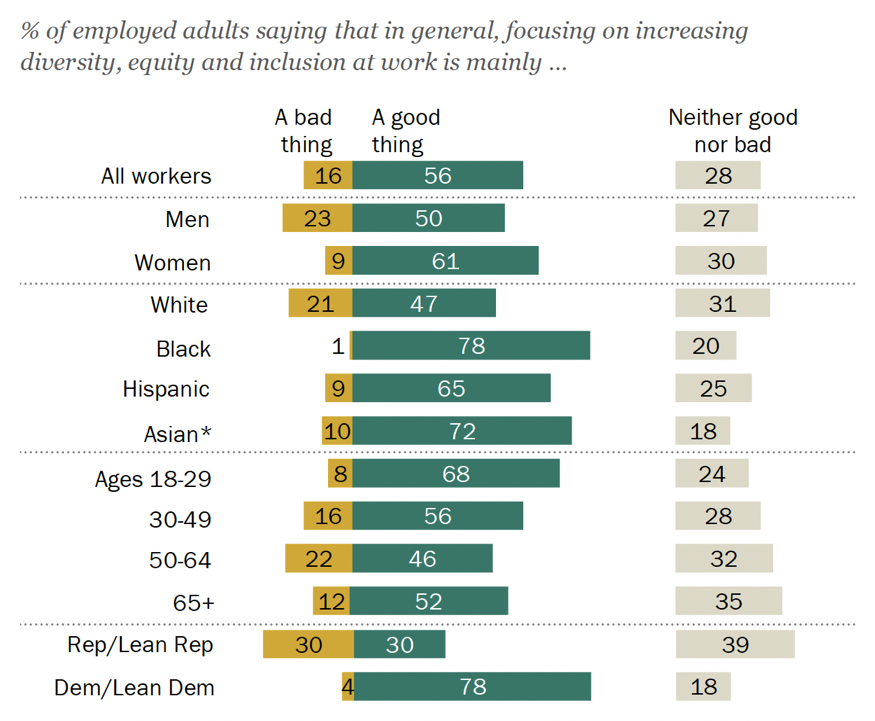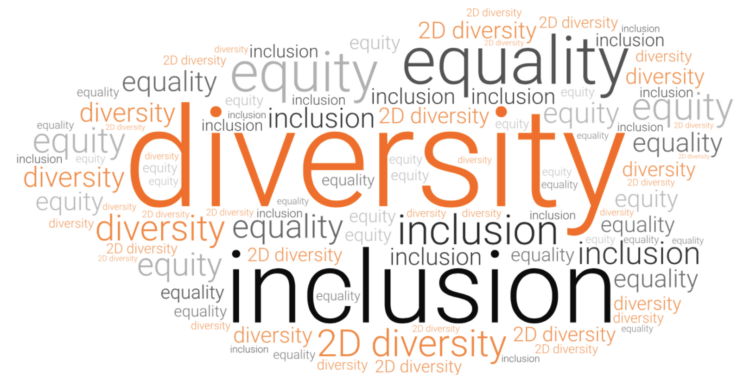Diversity, inclusion and equity, or “DIE” as some people call it, hasn’t been around for very long. Google trends shows that few Americans searched for “diversity inclusion” before around 2016 – though interest has been steadily climbing since then.
Today it’s practically everywhere: schools, universities, corporations, charities, the civil service, the armed forces. Even Britain’s supposedly cash-strapped NHS employs dozens of “diversity managers”, who often get paid as much as doctors.
The exact purpose of DIE is hard to pin down. According to Dictionary.com, it’s a “conceptual framework that promotes the fair treatment and full participation of all people”. The mega-consultancy McKinsey refers to “three closely linked values held by many organisations that are working to be supportive of different groups of individuals”. It all sounds very vague and platitudinous, doesn’t it?
We all know what DIE means in practice: bloated HR departments, politically correct jargon, patronising employee workshops, and discrimination in favour of ‘historically marginalised groups’. You’d assume, then, that a decent share of people would oppose it. Sure, some people like having their lives micro-managed by woke busybodies, but a lot of us don’t.
Yet according to a new survey by Pew Research, just 16% of U.S. workers say DIE is a “bad thing”. And 56% say it’s a “good thing”.

Far more men say it’s a “good thing” than a “bad thing”, and the same is true of whites. Even 30% of Republicans say it’s a “good thing”. What on earth is going on?
The first thing to say is that the question itself was quite vague: “Do you think that focusing on increasing diversity, equity and inclusion at work is mainly a good thing or a bad thing?” And it’s possible that some respondents just didn’t put two and two together. They thought “those things sound good”, without realising what “increasing diversity, equity and inclusion” actually entails.
A subsequent question in the survey did ask specifically about DIE “trainings”, and the results were pretty much the same. However, no question asked about positive discrimination – the aspect of DIE for which you’d expect the strongest opposition.
Another possibility is that the white, male, Republican respondents did put two and two together, but were concerned that if they gave the ‘wrong’ answer they might be punished. (Under DIE, you’re not allowed to criticise DIE.) It’s hard to believe this was a major factor given that the survey was anonymous. Though the fact that it asked about work may have primed some respondents to answer more “carefully” than they otherwise would.
A third factor is that the sample wasn’t representative of all U.S. workers. Only those working at a company or organisation with 10 or more people were included. This matters because self-employed workers may be more sceptical of DIE than your typical employee of a large corporation. Small business owners, for example, are among the most pro-Republican constituencies.
I’d like to see someone re-do the survey using methods that would address the points above. Given the backlash against Critical Race Theory, it’s difficult to believe that only 30% of Republicans consider DIE a bad thing. More research needed.
Stop Press: An additional consideration is that this was a ‘panel poll’ and, as Mike Hearn pointed out in the Daily Sceptic, certain groups are likely to be over-represented among the panellists that polling companies assemble, such as politically-engaged university graduates. They’re also more likely to be white, female and high earners, which is the demographic most committed to DIE ideology.











To join in with the discussion please make a donation to The Daily Sceptic.
Profanity and abuse will be removed and may lead to a permanent ban.